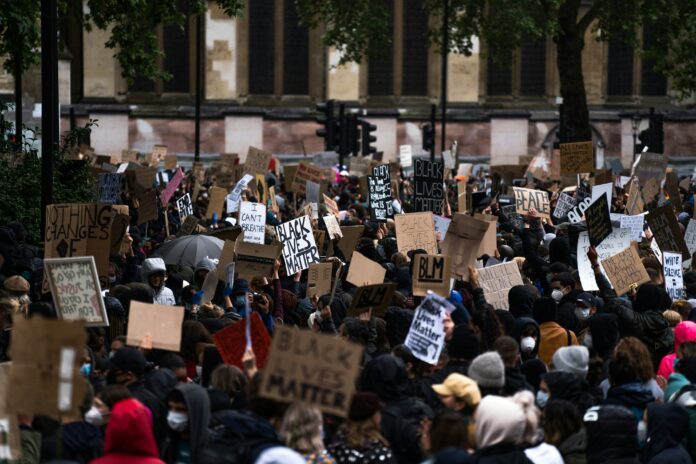In a long-awaited official report, it has been stated that due to governmental failures related to changes in the state pension age, thousands of women, potentially hundreds of thousands, are still awaiting compensation.
The Parliamentary and Health Service Ombudsman (PHSO) has stated that affected individuals should be compensated. However, the recommended payments between £1,000 and £2,950 per person fall significantly short of the £10,000 that campaigners were demanding.
Based on the number of those affected, the total bill could still be in the billions – potentially over £10 billion if all women born in the 1950s were compensated.
Nevertheless, the Ombudsman cannot compel the government to provide compensation and has stated that the Department for Work and Pensions (DWP) has made it clear they will “refuse to comply”, which was deemed “unacceptable”.
As a result, the PHSO has stated that it is taking the rare but necessary step of urging intervention from Parliament.
The Prime Minister’s spokesperson hinted that Downing Street would take time to consider the report but denied whether compensation or apologies would be issued by the government.
However, former Pensions Minister Steve Webb, a Liberal Democrat MP from 1997 to 2015, believed that some form of compensation would be necessary from the government.
Campaigners argue that retirement plans for nearly 4 million women born in the 1950s were “thrown into disarray,” with many losing thousands of pounds from their pockets due to the DWP increasing the state pension age from 60 to 65 and then 66. Some claim they were only given a 12-month notice of a six-year delay in their pensions.
The Ombudsman has been investigating this issue for years, and in July 2021, an initial report found the DWP guilty of maladministration in dealing with the changes.
On Thursday, the PHSO released its final report, stating that “thousands of women could be adversely affected by the failure to adequately inform them that the state pension age had changed”.
It has been stated that the department’s handling of the changes means that some women have lost the opportunity to make informed decisions about their finances, diminishing their personal autonomy and financial control.
In 2015, campaigners from the Women Against State Pension Inequality (WASPI) group urged the Ombudsman to recommend the maximum possible compensation (£10,000 or more).
However, the report indicates that considering the samples of complainants, it will recommend compensation between £1,000 and £2,950, which has impacted some individuals’ ability to lead a “normal life”.
The total number of women eligible for compensation remains unclear. The report suggests that compensating all women born in the 1950s at the recommended payment levels could cost the public purse between £3.5 billion and £10.5 billion, but it states: “We understand not all of them will have faced injustice.”
The report further states: “There may be a significant number of women born in the 1950s who, due to poor communication from the DWP about the 1995 Pensions Act, have suffered injustice. We will recommend that the DWP rectify their injustice.”
Many women have expressed dismay at receiving their pension at 60, only to find out that the state pension age may have been extended by four, five, or even six years. Until nearly 14 years after the law was passed, the government did not write to any affected woman.
“Vaspi has stated that there wasn’t enough time for hundreds of thousands of women to formulate alternative plans, and due to the changes made and communicated, some had to sell their homes, live without essentials, or become dependent on their elderly parents. Some have claimed that these changes could cost them thousands of pounds from their pockets.
A sample complainant, Ms. Yoo, informed the Ombudsman that she suffered a financial loss of £39,000, ‘This is the amount I would have expected to receive from my estimated [state pension age] to my actual [state pension age].’ Meanwhile, ‘Ms. W’ stated that she suffered a loss of nearly £45,000 due to reaching state pension age approximately six years later than expected.
Others mentioned even larger sums. ‘Ms. E’ disclosed that if she had been informed about the age increase, she would have incurred a loss of approximately £186,000 in earnings, while ‘Ms. W’ said that if she had remained in her job, she would have incurred a loss of over £442,000 in additional earnings.
However, the Ombudsman stated: ‘We do not believe these losses can equate directly to financial losses as per our guidance as they are the result of different options that Ms. E and Ms. W may have taken or could have taken if they had known their state pension age beforehand.’
Vaspi’s Chair, Angela Maiden, said, “Denying the findings of a five-year-long investigation by the Ombudsman is utterly unbelievable. One woman dies every 13 minutes due to these impacted women, and we cannot wait any longer.
She said that all political parties have a duty to demonstrate clear and unequivocal commitment to compensating affected women. The Ombudsman has thrown the ball firmly into Parliament’s court, and it is now the responsibility of MPs to deliver justice to all 3.6 million affected women.”
A spokesperson for the Ombudsman said, “We will consider the Ombudsman’s report and provide a timely response, cooperating fully throughout the entire investigation.” They further stated, “The government has always been committed to providing permanent support to all pensioners, which not only ensures their impartiality towards them and their creditors but also provides a dignified retirement.”
Web told the BBC that they didn’t think Parliament would “vote for inaction in an election year,” saying, “So, I think we’ll end up with some sort of harsh justice – I think the range of £1,000 to £3,000, recommended by the Ombudsman, is reasonable.”



